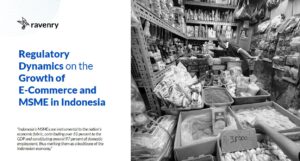The on-demand work model really took off when Uber made it easy for people to hail a ride from the comfort of their couches. The taxi industry was ripe to disrupt, marketplace technology was available, and the on-demand model was the right business model. Uber was so successful that the term Uber of became the zeitgeist for startups in the on-demand economy.
What followed was a surge of companies cloning the on-demand ride-hailing model for different industries from food delivery, handyman services, house cleaning, to weed delivery. Many of these jobs are rote work. Tasks involved in these jobs such as driving, ordering food, and cleaning are repetitive and can be scaled across many on-demand workers relatively easily. And given many of these jobs involve simple tasks, there are many people who can do them and the supply of workers is high.
As such, many on-demand businesses have the power to put downward pressure on the fees they pay their workers. Open marketplaces make it even easier for these companies to recruit people with the willingness to accept the lowest fees. On-demand businesses, on the other hand, virtually incur no additional costs by having more workers on their platform. In fact, they benefit from it as it increases competition for the jobs further placing downward pressure on fees they need to pay.
There are several downsides to this strategy. On-demand companies that aim to lower their worker’s fees do not have the margin to onboard, train, and manage their workers properly. Quality of service suffers as a result and client experience deteriorates. The most skilled workers also have less incentives to stay on the platform, and are likely to find alternative opportunities especially given the low barrier to join other on-demand platforms. Uber drivers can easily be Lyft drivers, and also become a handyman for Handy.
The other risk factor for workers in this industry is automation. In the traditional work sense, a job inherently involves multiple tasks and activities. A teacher does not only teach, but also plans for classes, grades tests, creates assessments, etc. A HR manager inputs payroll, manages people performance, creates training program, etc. The multi-faceted nature of these jobs makes it difficult for them to be displaced by mere technology. However, in the effort to scale, many on-demand jobs are so singularly focused on one task that they become so at risk of being replaced by robots.
Uber is already investing in autonomous vehicles. Amazon is building unstaffed supermarkets. FedEx is investing in delivery robots. It is inevitable that many on-demand task-based work is going to be automated away. While many of the largest on-demand companies are themselves the initiator of this disruption, are current on-demand workers able to change their destiny just as well and evolve themselves to face the reality of future on-demand work?
Many experts have predicted that the future of work will see an increase in the demand for knowledge workers. As workers spend less time doing manual work, their workdays are replaced by higher cognitive activities that require technological skills and creative problem solving skills. People are less focused on task-based work and instead move towards knowledge work.
Unlike task-based work, knowledge work is usually specialised and differentiated. That means that companies need to find the right knowledge worker for the work they have at hand. As companies become more complex and the kinds of problems they need to solve increase, their need for a pool of diversified knowledge workers will increase as well. As a result, the demand for on-demand knowledge workers will increase – as companies look beyond the walls of their organisations to fill in their internal talent gaps.
The on-demand model is creeping towards the top of the organisational pyramid. As collaboration tools improve, working with a network of on-demand knowledge workers becomes easier. The on-demand work model shifts from being a cost-saving tool for mechanical tasks towards becoming a value-adding enabler for deep expertise. As businesses transform itself for the future, we will discover that the future of on-demand work is one that is more befitting to knowledge workers. The question is are we able to transform the current army of on-demand task-based workforce into the future on-demand knowledge workers businesses will sorely need?







